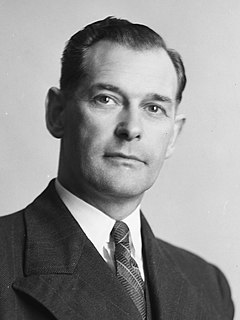This page is based on this
Wikipedia article Text is available under the
CC BY-SA 4.0 license; additional terms may apply.
Images, videos and audio are available under their respective licenses.
Secularism, as defined in the Merriam-Webster dictionary, is the "indifference to, or rejection or exclusion of, religion and religious considerations." As a philosophy, secularism seeks to interpret life on principles taken solely from the material world, without recourse to religion. In political terms, secularism is the principle of the separation of government institutions and persons mandated to represent the state from religious institution and religious dignitaries. Under a brief definition, secularism means that governments should remain neutral on the matter of religion and should not enforce nor prohibit the free exercise of religion, leaving religious choice to the liberty of the people. One manifestation of secularism is asserting the right to be free from religious rule and teachings, or, in a state declared to be neutral on matters of belief, from the imposition by government of religion or religious practices upon its people. Another manifestation of secularism is the view that public activities and decisions, especially political ones, should be uninfluenced by religious beliefs or practices.

Sir Keith Jacka Holyoake was the 26th Prime Minister of New Zealand, serving for a brief period in 1957 and then from 1960 to 1972, and also the 13th Governor-General of New Zealand, serving from 1977 to 1980. He is the only New Zealand politician to date to have held both positions.

The New Zealand National Party, shortened to National or the Nats, is a centre-right political party in New Zealand. It is one of two major parties that dominate contemporary New Zealand politics, alongside its traditional rival, the New Zealand Labour Party.

The Citizens for Rowling campaign was a failed campaign to stop Robert Muldoon winning the 1975 New Zealand election. It was named after then Labour Prime Minister Bill Rowling in the lead-up to the 1975 general election. Members of the campaign publicly signed the "Citizens for Rowling" petition warning against a National government led by Muldoon. The campaign was largely organised by David Exel, a former television producer and current affairs interviewer.
Ronald Hubert Holyoake was an English first-class cricketer who played three games for Worcestershire late in the 1924 season. His highest score of 22 was made in the second of these, against Nottinghamshire at New Road.

Holyoake House is a building in the NOMA district of Manchester, England, which was completed in 1911. Designed by F.E.L. Harris, it was built for the Co-operative Union in memory of George Holyoake. It is located alongside other listed buildings such as the CIS Tower, Hanover Building and Redfern Building and is owned by Co-operatives UK.

Studley Castle is a 19th-century country house at Studley, Warwickshire, England.

Ahern Glacier is a small tributary glacier flowing east from the Churchill Mountains between Mount Lindley and Mount Hoskins to enter Starshot Glacier. It was named by the Holyoake, Cobham, and Queen Elizabeth Ranges Party of the New Zealand Geological Survey Antarctic Expedition (1964–65) for B. Ahern, a member of the party.
Anthony "Tony" Holyoake was an retired English born Canadian professional darts player.
Mark Holyoake is a New Zealand gymnast, born in Wellington. He was placed 25th at the 2005 World Artistic Gymnastics Championships and 11th at the 2006 Commonwealth Games. He was part of the New Zealand team that placed 4th at the 2010 Commonwealth Games and he also placed 4th on the Parallel bars at the same event. In 2010, Mark Holyoake retired and is now a personal trainer at Les Mills International.
Sir Lyttleton Holyoake Bayley, was an English lawyer who served as Attorney-General of New South Wales and Advocate-General of Bombay. He was also an amateur cricketer who played in 16 first-class cricket matches.

The 35th New Zealand Parliament was a term of the New Zealand Parliament. It was elected at the 1966 general election on 26 November of that year.

Sophia Dobson Collet was a 19th-century English feminist freethinker. She wrote under the pen name Panthea in George Holyoake's Reasoner, wrote for The Spectator and was a friend of the leading feminist Frances Power Cobbe.

The New Zealand National Party leadership election 1957 was held to choose the next leader of the New Zealand National Party. The election was won by Pahiatua MP Keith Holyoake.

The New Zealand National Party leadership election was held to determine the leadership of the New Zealand National Party. The election was won by Karori MP Jack Marshall.









